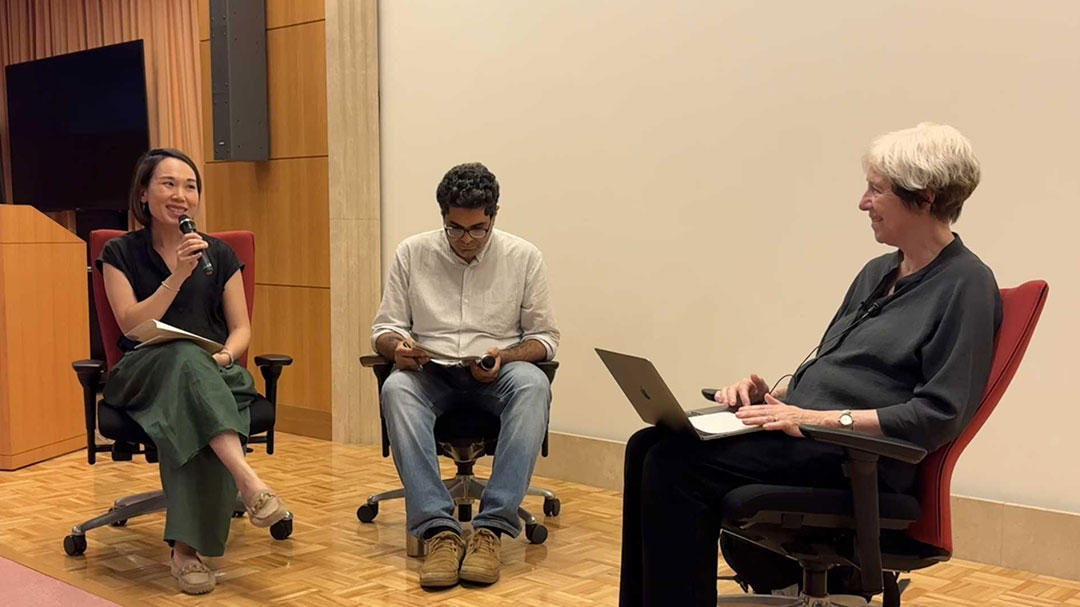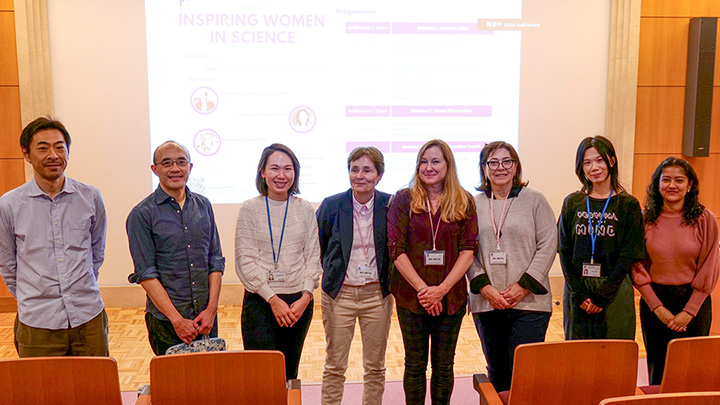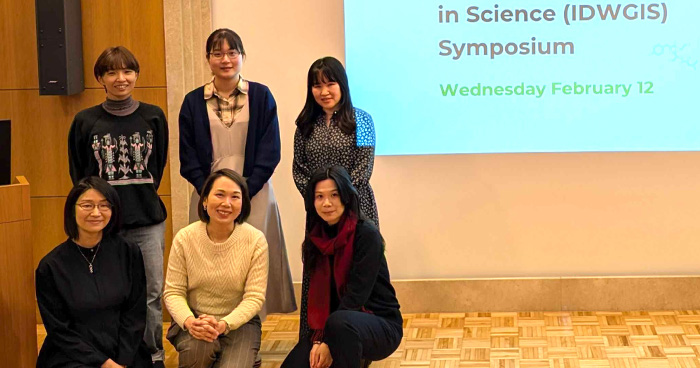Fostering Diversity in Science: Insights from Professor Fiona WattInspiring Dialogue on Inclusivity Hosted by BDR Launchpad
Aug. 15, 2024
On July 16, 2024, Professor Fiona Watt, director of the European Molecular Biology Organization (EMBO), graciously set aside some time to sit down with members of the BDR and shared her views on diversity in science in a special panel discussion. She was visiting RIKEN BDR to give a scientific talk as part of the BDR Seminar series, at the invitation by her former postdoc, Dr. Hironobu Fujiwara, who is now a Team Leader at BDR.
The special panel discussion, focusing on diversity in science, was organized by BDR Launchpad, a grassroots gathering of young students and researchers that was initially launched by BDR postdocs Dr. Bipasha Dey and Dr. Sameer Thukral, from the Laboratory for Epithelial Morphogenesis, and run with a few other members of BDR—it is now supported by BDR Diversity Working Group (WG). The mission of BDR Launchpad is to discuss the hidden curriculum of science, encompassing aspects such as grant writing, presentation skills, emotional resilience, and networking skills. Since its launch in April 2024, BDR Launchpad has invited principal investigators (PIs) for candid chats about scientific careers. This latest event welcoming Dr. Watt was the fourth one organized by BDR Launchpad and approximately 30 people, including postdocs and students, were in attendance.
The panel discussion was facilitated by Dr. Sameer Thukral and Dr. Li-Kun Phng, Team Leader of the Laboratory for Vascular Morphogenesis, who is also a member of the BDR Diversity WG.

The forum opened with the candid question posed by Dr. Thukral, “Why is diversity important?" Dr. Watt responded by explaining, "Diversity is essential for creating world-class research institutions. I believe that scientific curiosity exists across all backgrounds and embracing diversity allows scientific institutions to access a broader talent pool and perspectives, leading to more innovative research. If a particular topic is dominated by a group of scientists who have the same background, then it's not going to be open to new ideas. So having a diverse group of scientists helps stimulate diversity of thought."
On the topic of fostering gender balance in science, Dr. Phng asked, "How do we foster diversity? Does it simply mean hiring more women? Or does it go beyond that?" Dr. Watt acknowledged the significant progress made in achieving gender balance, particularly at the PhD and postdoc level in many countries, but noted that challenges remain, such as the fact that women often leave academia when faced with the dual challenges of becoming PIs and starting families. To address this issue, she suggested that the availability and accessibility to good childcare, and for men and women to bear equal responsibility for raising children as being critical. Furthermore, to counter potential biases in academia, policies should be implemented to increase women's representation on grant review panels.
Mentorship for women in science was also highlighted by Dr. Watt as being an important mechanism to support women. She suggested creating a mentorship network of senior women scientists, particularly in countries where gender balance in science is still developing. She also stressed the value of seeking advice and mentorship, regardless of the formality of the relationship.
When discussing ethnic diversity, Dr. Watt shared her experience in implementing policies to increase diversity in UK funding panels by matching the proportion of panelists from diverse backgrounds to the applicants. She also noted that tailored approaches may be necessary for different aspects of diversity and that increasing representation on panels ensures a more inclusive evaluation process for all.
The panel discussion touched on the challenges faced by early-career researchers as well, with Dr. Watt emphasizing the need for senior professors to take responsibility for supporting the next generation of scientists, by holding regular discussions about career goals and plans and encouraging the exploration of different career paths. She mentioned that it is equally important to create career paths for technical staff and non-faculty positions, and shared examples of UK universities that have established parallel tracks for technicians and professors, including salary progression, to retain talented individuals in academia.
She also discussed the need for continuous monitoring and vigilance to address diversity challenges, sharing an example from EMBO's postdoctoral fellowship program, where data analysis had revealed a potential subtle bias against women applicants that consequently led to changes in the review process. Ensuring diverse representation on hiring panels and creating an environment where biases can be pointed out without fear are crucial.
"You can never assume it's sorted," Dr. Watt cautioned. "It's an ongoing process, and people need to be watchful and vigilant about these things."
Dr. Watt's insights presented at the panel discussion underscore the multifaceted nature of fostering diversity in science. To create a truly inclusive scientific institution, addressing gender and ethnic representation, supporting early-career researchers, and creating alternative career paths are essential. As science evolves, promoting diversity will be crucial in ensuring the broadest possible pool of talent and perspectives.






